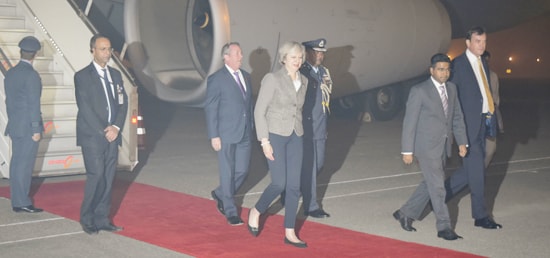
Visa barrier: Will May’s visit bring good news for India?
As British Prime Minister Theresa May began her three-day trip to India – the country May has described as UK’s “most important and closest friend” — armed with 40 delegates …
Read MoreGlobal Indian News

As British Prime Minister Theresa May began her three-day trip to India – the country May has described as UK’s “most important and closest friend” — armed with 40 delegates …
Read More
With the overarching focus on refashioning ties with New Delhi in the aftermath of London’s planned exit from the EU, British Prime Minister Theresa May has glowingly described India as the UK’s “most important and closest” friend and “a leading power in the world” as she begins a three-day visit to the world’s fastest growing economy on November 6.
Ahead of her first bilateral visit to a non-EU country, May outlined an ambitious agenda for dovetailing British capital and expertise to help fructify India’s development agenda pivoted around Make in India, smart cities and the spurring of an ongoing digital revolution.
In an article published in the ‘Sunday Telegraph’ a day before May holds talks with India’s Prime Minister Narendra Modi in New Delhi on November 7, she lauded India and its leader, who is “undertaking a far-reaching programme of reform.” “
For India, seeking clarification on the British government’s visa policy will be a top priority. May’s hard-line views on curbing immigration and tightening of visa rules has generated concern and anxiety in India. Read more….
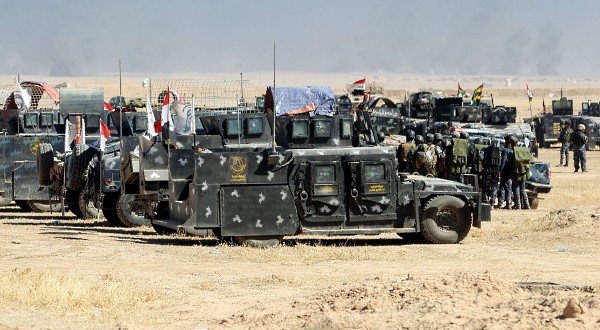
The battle lines are drawn for retaking the last terrorist citadel in Iraq. With 25000 of Iraqi soldiers trained and armed by US and its allies, 5000 battle-hardened members of the Kurdish militia Peshmarga, an assortment of Shia militias called Al Hashad Al Shabi groomed by Iran and groups of Sunni tribal fighters in hundreds trained by Turkish army encircling an estimated 10,000 Jehadist fighters of various nationalities in Mosul of the so-called Islamic State in Iraq and Syria (ISIS), the stakes are higher than ever.
Read More
Capping years of tortuous negotiations, India and Japan look set to sign a transformational civil nuclear deal during Prime Minister Narendra Modi’s November 10-12 visit to Tokyo.
The negotiations for the civil nuclear deal were completed during Japanese Prime Minister Shinzo Abe’s visit to New Delhi in December last year. The text for the civil nuclear deal has also been finalised, with all contentious issues sorted out. Since then, nuclear negotiators of both sides have completed a technical and legal scrub of the text of the nuclear agreement.
The agreement is expected to be signed after talks between Mr Modi and his Japanese counterpart Abe in Tokyo on November 11.
The signing of the nuclear deal will pave the way for acceleration of India-Japan relations in all areas as it’s the only issue that is restricting the full potential of the strategic partnership between Asia’s leading democracies, which are moving closer in the backdrop of perceived Chinese assertiveness in the region.
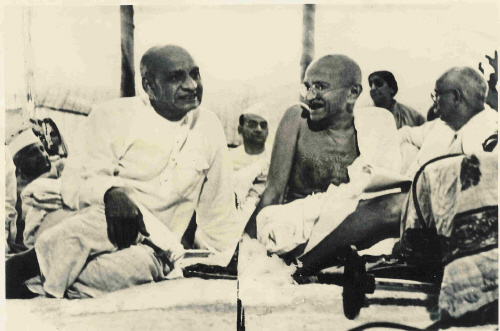
An extraordinary leader, freedom fighter and architect of the integration of India, Sardar Vallabhbhai Patel, better known as “Iron Man of India,” remains an enduring icon of patriotism, nationalism and the spirit of public service. In a fitting tribute to this giant, India will be launching week-long celebrations on Sardar Patel’s birth anniversary on October 31, which has been aptly designated as Rashtriya Ekta Divas or National Unity Day.
A quintessential self-made man, Patel’s life story exemplifies the sheer power of will, hard work and sincerity as he scripted a new life for himself first as a lawyer, and then as a freedom fighter and nation-builder amid trying circumstances.
Given his formidable organizational abilities and unflinching commitment to nation-building, Sardar Patel was appointedas the first deputy prime minister and home minister of independent India, the crucial posts which brought out the best in him and help create an integrated and unified India as we know it now. Patel the Unifier is justly remembered for his iron will and firmness with which he facilitated the integration of over 500 princely states into the framework of federal India.
A pragmatist and realist to the core, Patel was a sharp observer of the international scene and advocated a realistic foreign policy in place of a symbolic idealism. He consistently advocated that no move must be adopted that would compromise the territorial integrity of India, and in particular, cautioned against internationalizing the Kashmir dispute. “I should like to make one thing clear, that we shall not surrender an inch of Kashmir territory to anybody,” Patel famously said.
Sardar Patel may have lived only two and a half years after India’s independence, but in those few months, he shaped the narrative of a modern, strong and self-reliant India. Often compared to Germany’s legendary leader Otto van Bismarck for his key role in the integration of princely states into India, Patel contributed to nation-building in myriad ways.
Decades after his death, Sardar Patel’s absolute love and devotion for India continues to inspire all those who are engaged in the resurgence of India. Tributes and honours continue to pour in for this legendary figure to this day.
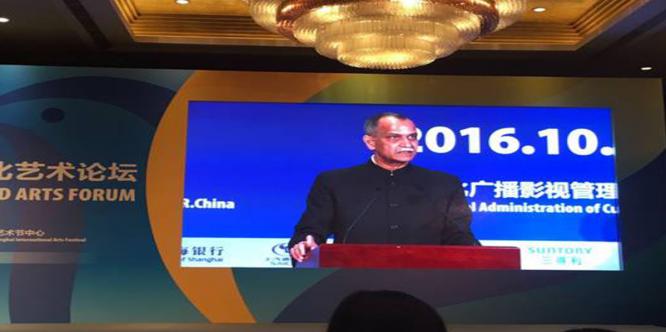
Politics divides, culture connects. In Shanghai, a pact was signed between India and China to recreate Raj Kapoor’s 1951 classic Awaara into a contemporary Chinese opera.
Amarendra Khatua, the new director-general of Indian Council for Cultural Relations (ICCR), who was in Shanghai to deliver the keynote address at the 18th China Shanghai International Arts Festival (CSIAF), struck an upbeat note on long-standing civilisational ties and promoting cultural exchanges in Tier-II and Tier-III cities in India and China. The joint theatrical remake of Awaara, which remains the most popular Indian movie in China, hints at more such collaborative cultural tie-ups India is set to pursue in days to come.
“Cultural diplomacy is poised to play a bigger role in India’s foreign policy calculus in days and months to come and promote Brand India,” said Khatua, a veteran diplomat who is also famous as an accomplished poet who writes and translates in English, Hindi and other Indian languages.
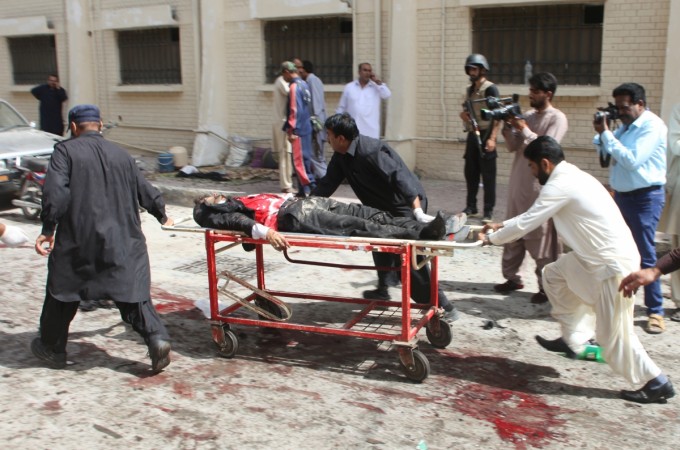
In one of the deadliest terror attacks in Pakistan, militants opened targeted the Police Academy in Quetta, the capital of the volatile southwestern province of Baluchistan, killing at least 60 people …
Read More
India’s cross-LoC strikes on terrorist launch pads located in Pakistan-occupied Kashmir (PoK) have been much discussed in recent days. While the government has officially described the attacks on terrorist launch …
Read More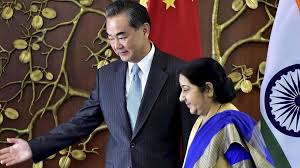
Owing to the growing engagements that India has with countries around the world, a discussion on the importance of paradiplomacy forms not just a quintessential part of the country’s foreign policy analysis but also makes space for a subsequent and crucial shift in India’s strategies in conducting international relations. As opposed to conventional diplomatic relations, which fall under the exclusive domain of sovereign nation states exercised by central governments, paradiplomacy, a ‘neologism’ makes space for ‘external relations’ of sub-national or federal units which might indulge themselves in international activism in order to promote their own interests. While, broadly, the aims of subnational diplomatic interactions have been to outsource business on account of good governance and to attract investments at a regional level, the advantages of paradiplomacy are many when one speaks of the Indian turf.
Though not Prime Minister Modi’s brainchild in terms of its inception, the concept of ‘constituent diplomacy’ certainly appeals and gains importance in the context of India, which has a highly centralised foreign policy. Never less than incisive in his choice of actions, PM Modi articulated and espoused a greater role for states in boosting India’s economic growth even before assuming office at the Centre. Having competently tested and executed his vision of such decentralisation in Gujarat even within the constraints of the Indian foreign policy scene, Modi indicated a paradigm shift in India’s foreign policy making by appreciating the consequential role that States can and will play in the conduct of diplomacy.
Read More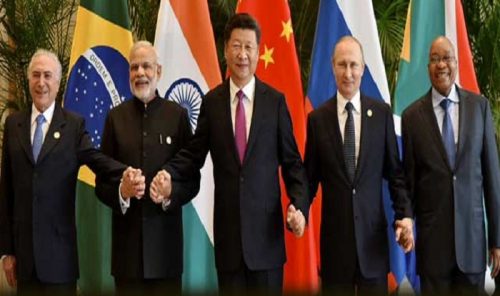
Indian diplomacy experienced an inflection point following the terrorist attack on September 18, 2016, at the Army encampment at Uri. Determined to raise costs for Pakistan to counter its strategy of bleeding India by a thousand cuts, the Indian government mounted an international campaign to paint Pakistan as a state-sponsor of global terrorism and to ‘isolate’ the country in the international community.
India made Pakistan’s state-sponsorship of terrorism, without naming it, a key element of its diplomatic agenda for the 8th BRICS summit hosted by it in Goa on October 15-16; the event also coincided with India-Russia and India-Brazil summit meetings. To deny Pakistan the chokehold on regional integration as well as to further ‘isolate’ it in the region, a BRICS’ outreach with the BIMSTEC at the summit level was organised. In all his interactions, Prime Minister Modi made a clear linkage between terrorism and economic prosperity, underlining Pakistan’s official complicity which casts a dark shadow on countries as well as on multilateral efforts to promote socio-economic progress. In his press statement, at the end of the annual India-Russia summit between PM Modi and Russian President Vladimir Putin, he said Russia’s “clear stand on the need to combat terrorism mirrors our own.”
Prime Minister’s remarks on terrorism, at the concluding session of BRICS summit, were aimed at Pakistan when he declared that combating terrorism, “including cross-border terrorism and its supporters”, will be a key BRICS priority. The Goa Declaration, issued by the summit leaders, contains the key elements of India’s counterterrorism narrative but is less direct on the issue of isolation.
The BIMSTEC Outcome Document is even more satisfactory in terms of India’s counter-terrorism diplomacy.
Aiming to impose costs on Pakistan for pursuing its ‘low cost’ strategy, Indian diplomacy has widened the diplomatic and military space, in its bilateral relations with Pakistan, to ratchet up the pressure especially as focused military action to Pakistani terrorist provocations has not been ruled out. Against the backdrop of incandescent international anger against terrorism, Pakistan cannot misread the signals originating from Goa.